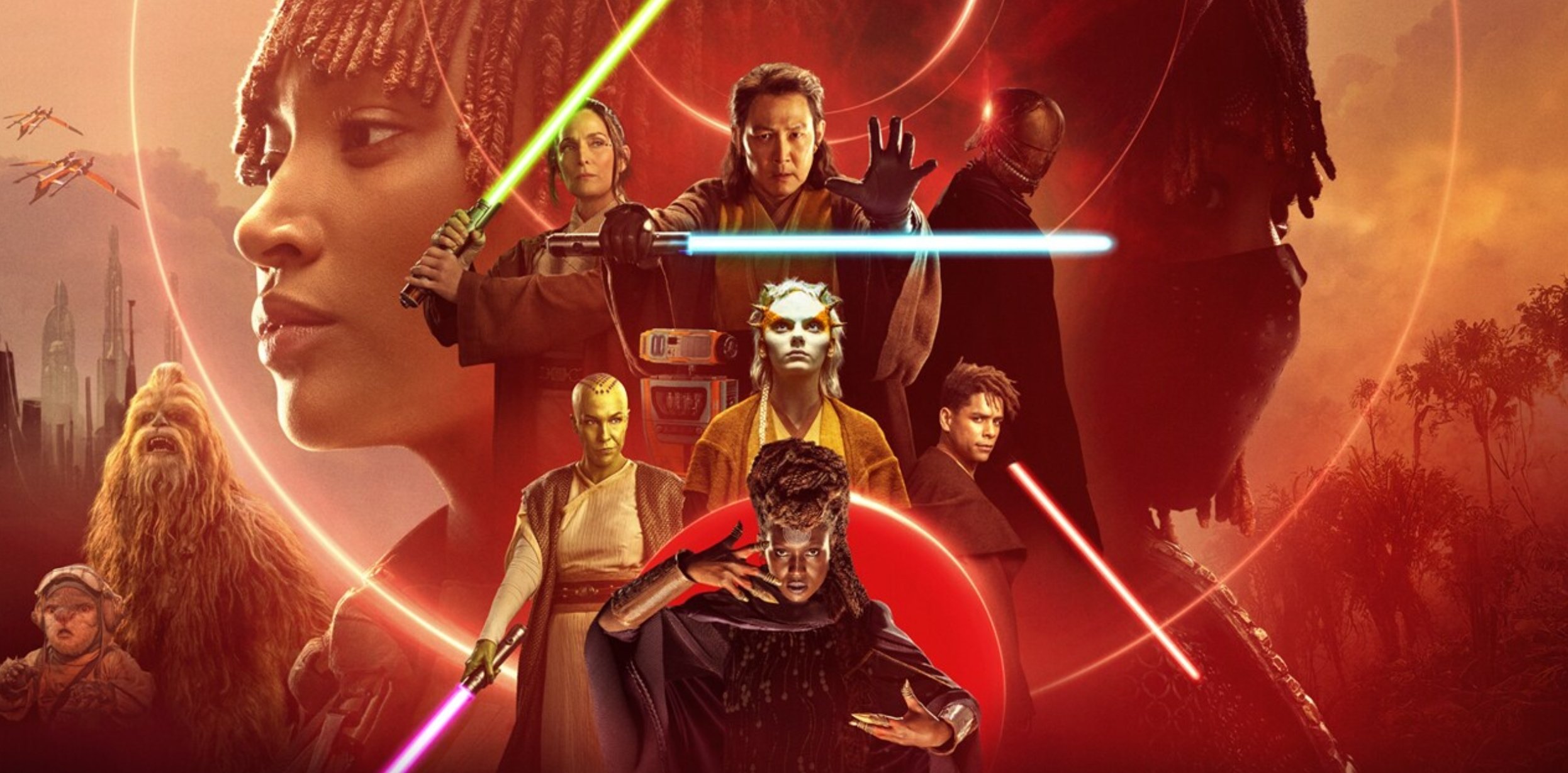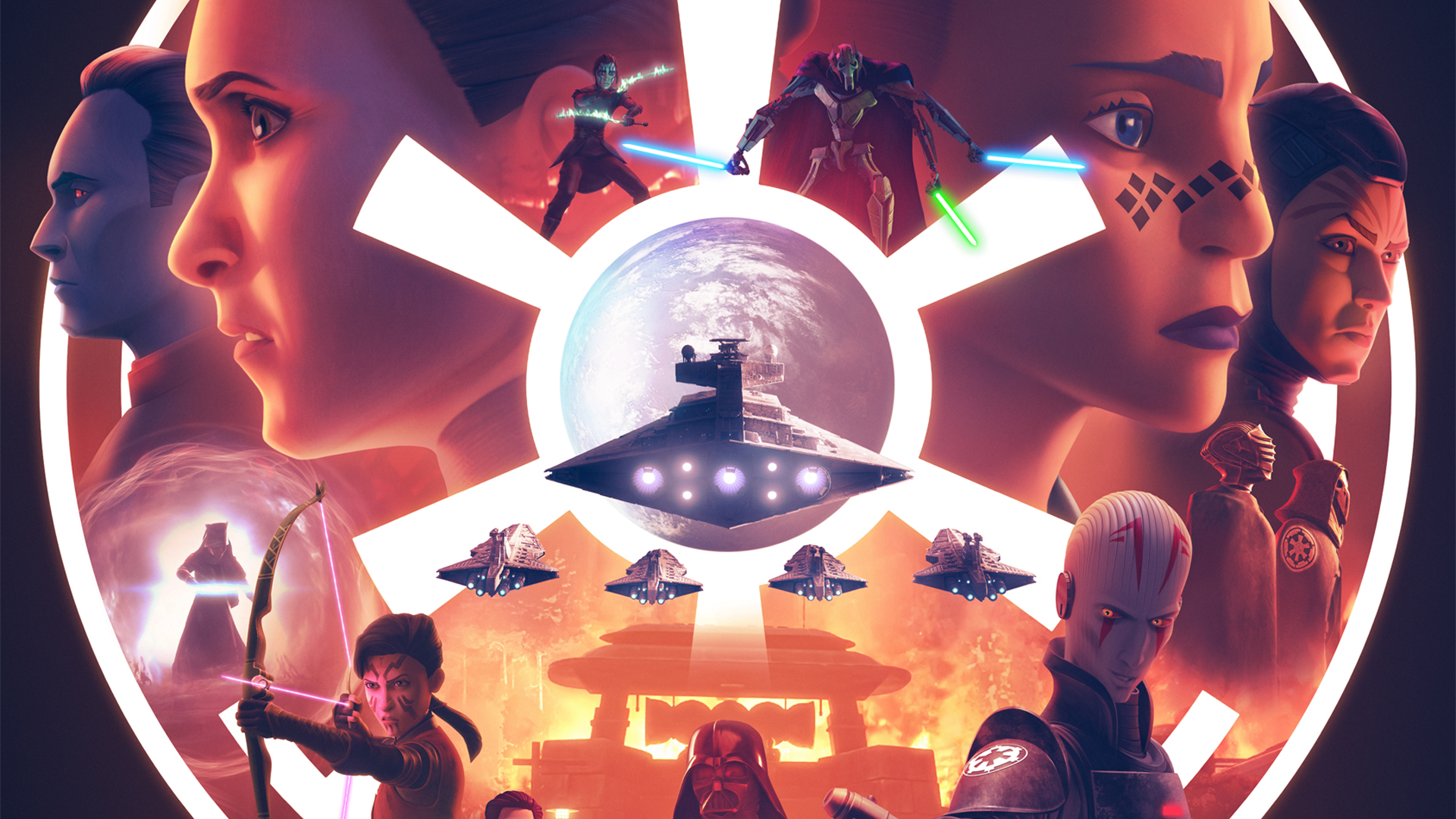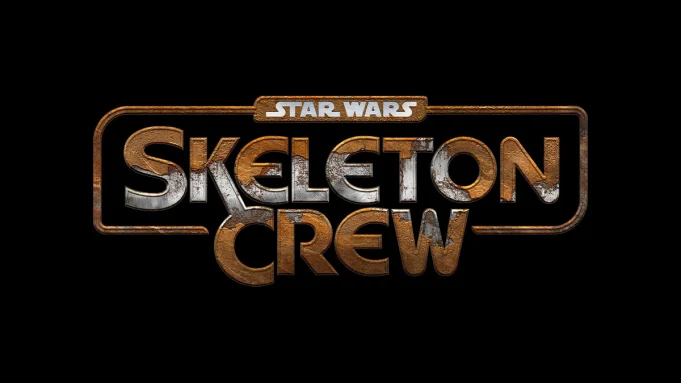‘The Hunger Games: The Ballad of Songbirds and Snakes’ Review – “I Don’t Sing When I’m Told, I Sing When I Have Something To Say”
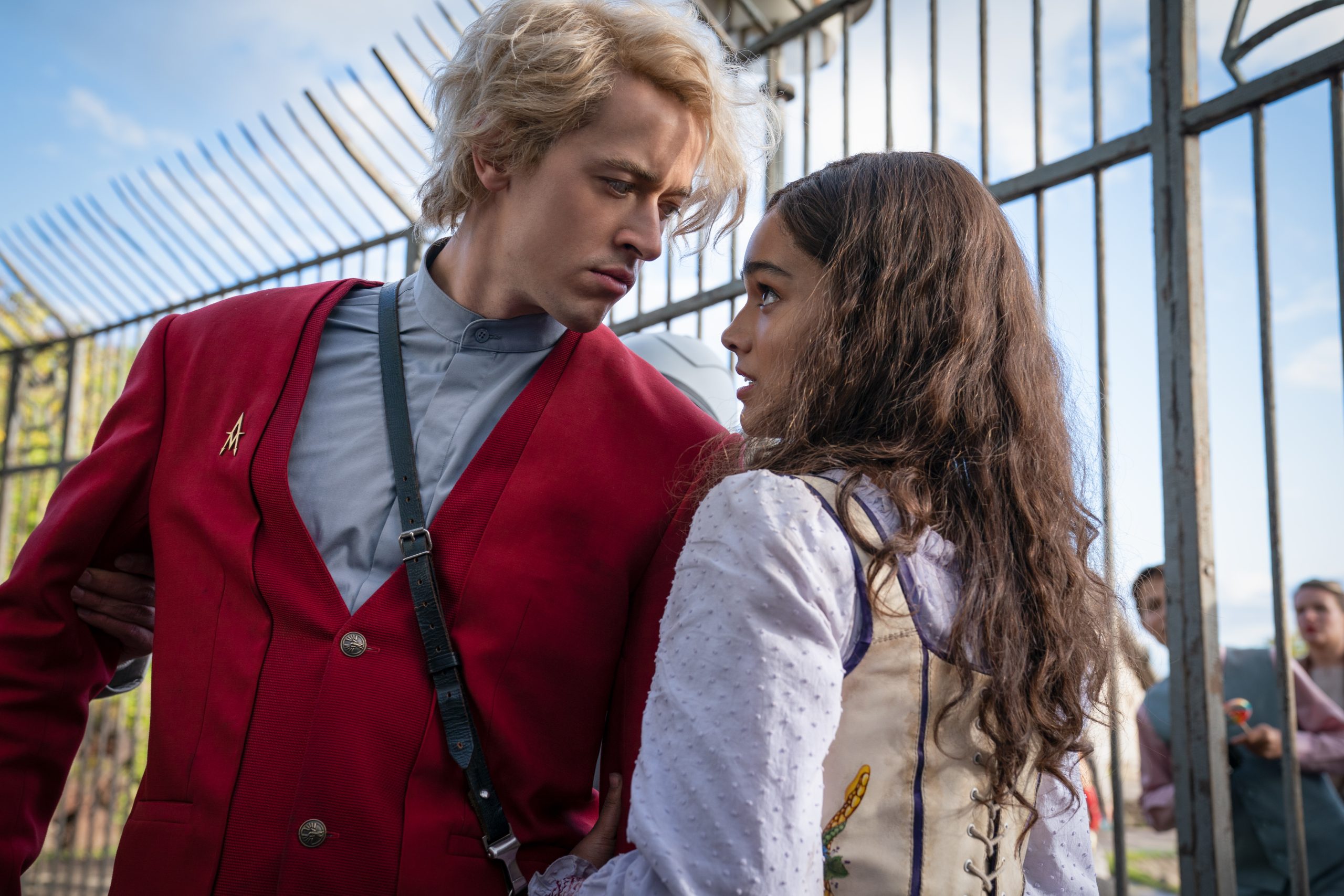
Tom Blyth as Coriolanus Snow and Rachel Zegler as Lucy Gray Baird in “The Hunger Games: The Ballad of Songbirds & Snakes”. Photo Credit: Murray Close
There’s really no overstating the massive eye-roll I gave the first time I saw the logo of the latest entry in the Hunger Games series, subtitled The Ballad of Songbirds and Snakes, which adapts the 2020 prequel novel by Suzanne Collins. I am no fan of the original four films starring Jennifer Lawrence, and I had no urge to go back to Panem and explore the backstory of President Snow, one of the most unappealing premises I had ever encountered (I am in general against the idea of doing prequels to justify every bit of backstory of a character).
But in the words of Lucy Gray (oh, we’ll get to her): “I don’t sing when I’m told, I sing when I have something to say.” Lionsgate obviously wanted another franchise play from their most lucrative IP, which is why they started development even before the novel came out, but screenwriters Michael Arndt and Michael Lesslie had an actual reason to board the adaptation. They saw real potential in the story, and I am so glad they did because The Ballad of Songbirds and Snakes is absolutely wonderful.
It all starts with a solid script. It may be a prequel, but the story here is as vast and intricate, layered and nuanced, as anything I sort of remember from the Lawrence-led films. In fact, there is a solid argument to be made that the condensed plot could have worked better as a one- or two-season limited series, but it also carries an epic factor that belongs on the big screen. Had Warner Bros. acquired the rights to the book, I have no doubt this would have immediately been turned into a Max original, and perhaps that would have allowed for an even better arc for our lead character (being almost two-and-a-half hours, the story could have actually benefited from another 30-45 minutes, yet at the same time it already felt like it was dragging by the end; pacing is everything). And still, I am happy Lionsgate had this one and had the audacity (and also financial need) to not license out the rights to Netflix.
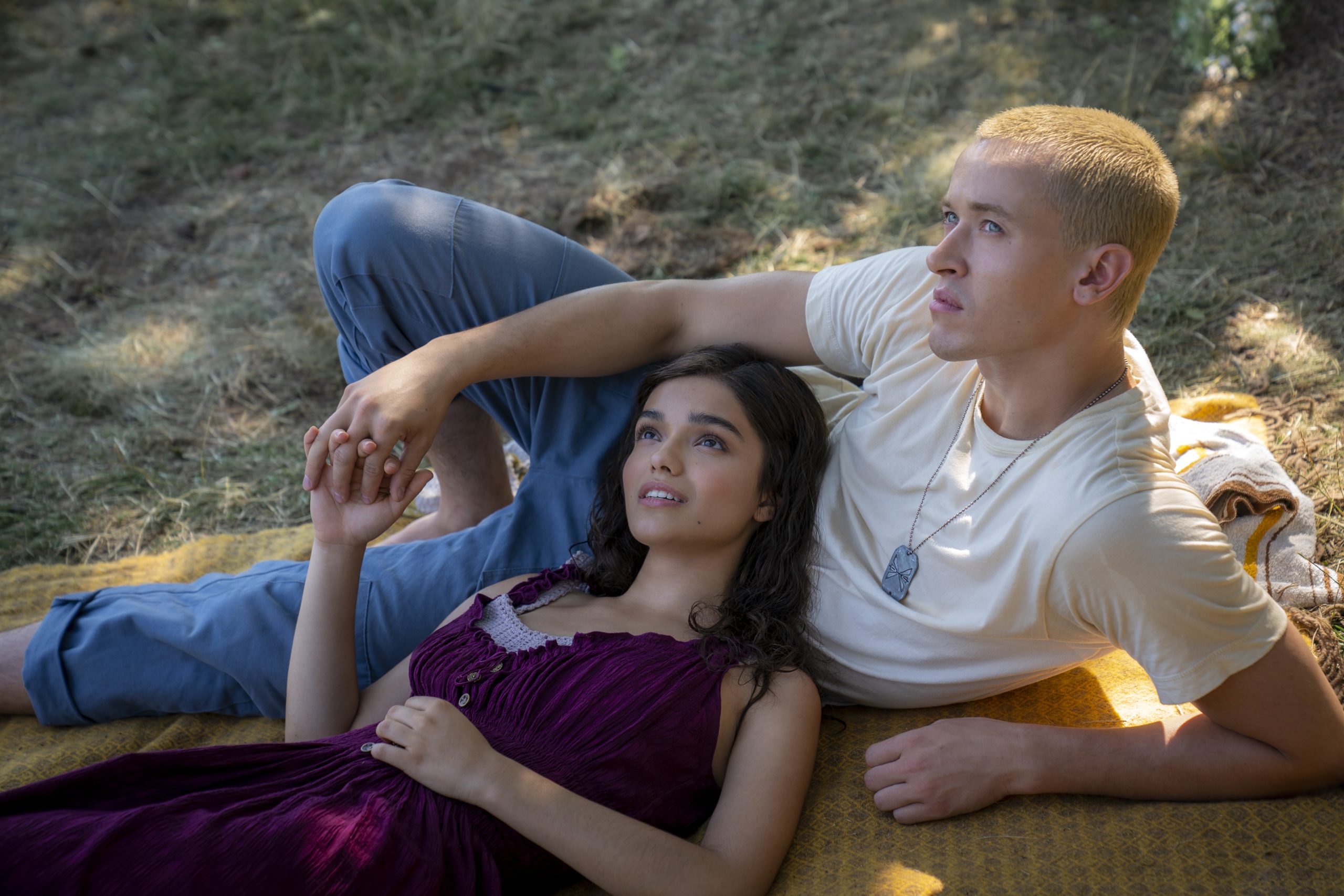
Rachel Zegler as Lucy Gray Baird and Tom Blyth as Coriolanus Snow in “The Hunger Games: The Ballad of Songbirds and Snakes”. Photo Credit: Murray Close
As teased previously, the story is set during the 10th Annual Hunger Games, and it follows Coriolanus Snow (a magnificent Tom Blyth, a star in the making) as the Capitol’s most aspiring young man. The day he was to assume his role in the adult world by winning the coveted Plinth Prize and take his family out of financial needs, the Academy’s dean (Peter Dinklage, in yet another great turn as a grumpy man who has had enough of rebellious teenagers) announces a change of plans. The aspirants to the award will instead be assigned to a participant in the coming Hunger Games, and they will be judged on the way they handle the task. Young Coryo, who already thinks the dean despises him, is given even more ammunition once he learns he’s been assigned to the girl from District Twelve — the songbird Lucy Gray Baird (Rachel Zegler, who once again steals the entire movie), who bursts into song and vows to the audience upon hearing her name called out.
And so, a connection is formed. Snow sees potential in how the public may fall in love with Lucy Gray if they get to know her, and starts to push for ideas to make the low-ratings telecast more appealing to audiences by making them care for the competitors. The dean couldn’t disagree more with his tactics, but there is one person who believes in him: Dr. Volumnia Gaul (an -intentionally- slightly over-the-top Viola Davis, whose makeup already tells you everything you need to know about her), who quickly becomes a mentor to young Snow.
The Ballad of Songbirds and Snakes is what happens when you put great talent behind the movie and give them the proper time to develop it. Arndt and Lesslie’s script is carefully constructed and captivating from the very start, but Tom Blyth’s can’t-get-my-eyes-off-him performance takes what’s on the written page and turns it into an edge-of-your-seat experience. It’s a conflicted character in the middle of a conflicting world, and even though you may know where things are headed, you don’t know (and will be surprised by) how we get there.
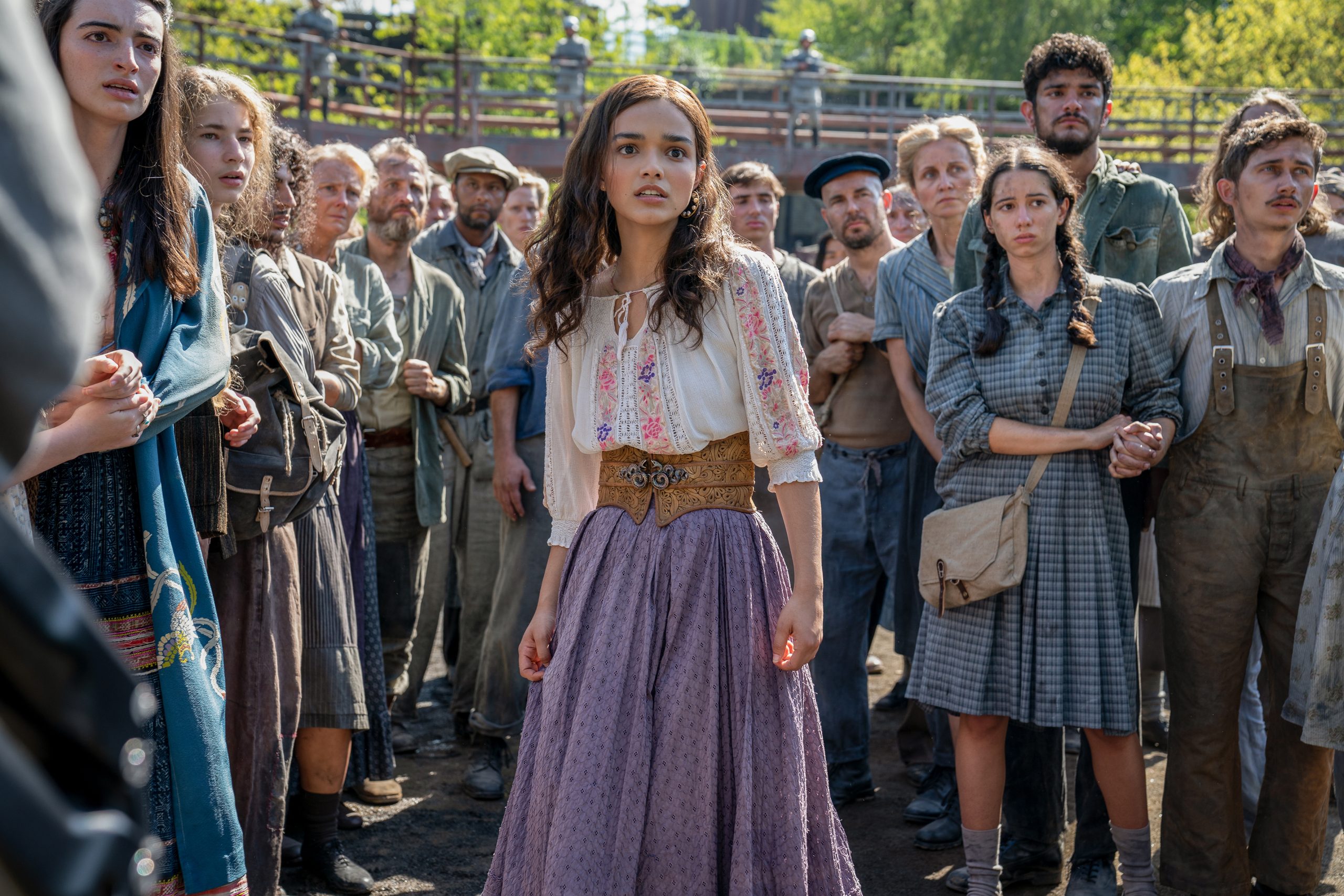
Honor Gillies as Barb Azure, Konstantin Taffet as Clerk Carmine and Rachel Zegler as Lucy Gray Baird in “The Hunger Games: The Ballad of Songbirds and Snakes”. Photo Credit: Murray Close
By the end, the Coriolanus Snow we meet in the final scene is definitely nowhere near whatever I remember Donald Sutherland brought to the role in the previous movies (set 64 years in the future), but you can definitely see how he’s more on the path of becoming that tyrannical leader than he was during the course of the film. And though some of the steps taken to get there may be slightly abrupt, it feels like a natural progression for the most part. This is also where the limited series idea, especially in a TV landscape looking for the next Breaking Bad, could have come in handy. However, there is still enough space for him and us after the movie to further explore the descent into chaos and the subsequent order.
The Ballad of Songbirds and Snakes truly takes off when it’s a duo between Snow and Lucy Gray, whom Zegler plays with such raw passion yet also inherent goodness (with enough slyness to make the character a lot more interesting). It’s no secret since we saw her in West Side Story that she can sing like an angel, and she does get four or five times to shine at that. Zegler’s performance may be the definitive argument to put Lawrence’s one-note portrayal to bed. You may argue that Katniss went through enough stuff in her life to drive anyone to depression, but so has Lucy Gray — and that didn’t prevent Zegler from bringing a wide range of emotions to her character. Pretty much every facial expression masquerades three different feelings that clash with each other, because that is also how the character feels in every moment of her life.
The full potential of the concept behind this world is finally exploited in this film. No longer reduced to a good vs. evil fight, The Ballad of Songbirds and Snakes has the audacity to put us in the center of the narrative and ask what we would do then. To raise interesting philosophical questions and feel like it’s giving two different answers; it’s up to you to choose which one is the right one. The brutality from certain scenes is then contrasted with a bucolic scene by the lake, and Zegler’s singing is juxtaposed with abuses of power and corruption by people who have more desire to be on top than they have to rule.
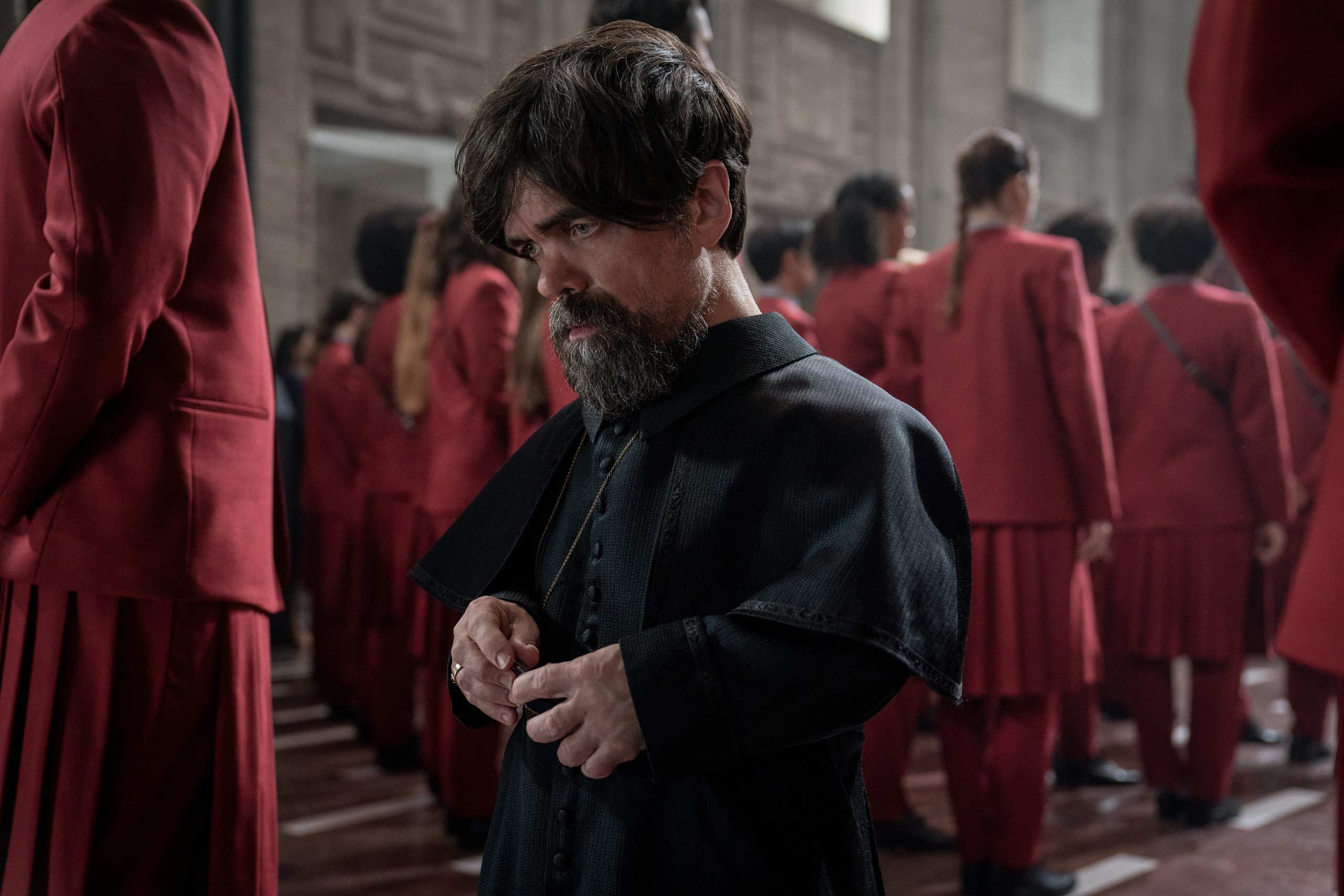
Peter Dinklage as Casca Highbottom in “The Hunger Games: The Ballad of Songbirds and Snakes”. Photo Credit: Murray Close
The film is structured in three parts, which also match the three acts of the story. The first two flow so well it’s actually hard to believe they were made by the same person (Francis Lawrence) who directed the Mockingjay films. The second act, which contains the Hunger Games sequence, is as visceral and exciting as it is hard to watch at times (even if it casually drops in classic “movie moments” you eventually have to get over). The script uses the system of setup-payoff much better than most blockbusters in recent memory not starring Tom Cruise, which makes for an even more satisfying experience.
However, it is when we transition from the second act into the third that we experience a slight decline in interest. The entire build-up of the first two acts climaxes at the end of Part II, and when the Part III title card pops on the screen, we realize not only we have 40 more minutes to go, but we now have to start building that momentum again. And the film does get there, eventually, and the conclusion felt appropriate. However, the structure of the film can’t help but come across as a little jarring, as the flow of the story is broken with that cut to black (but not to credits). This is probably where that first season of the limited series would have ended, with a tease good enough to keep us watching the next, but also what felt like a semi-satisfying conclusion to what had come before. I also acknowledge, though, that Lionsgate could have turned this into a two-parter as they did a decade ago with the third Hunger Games book — and I hattip them for not going that way. It was the least bad solution.
There is also a small twist revealed in the final minutes of the film that sort of recontextualizes some of the events of the film, but that logically would have had to come up earlier. I understand the writing appeal of having the audience on the edge and giving them a final “Didn’t see that coming” feeling, but it didn’t really land well because of how it was done. Regardless, it’s something I’m willing to overlook — and perhaps subsequent viewings might change my mind.
It all comes down to the script and putting your characters and great performers ahead of senseless action. Arndt and Lesslie were clearly inspired by a lot of the themes that this world offers, and in particular, the story of a morally ambiguous character charting his own path as he turns into the person he probably would have despised by the beginning of the story. The character of Lucy Gray does not fall behind either, being someone with the heart in the right place that was put into the worst possible scenario and was dealt the worst possible cards. And still, she showed love, compassion, and perhaps most importantly, remorse, when push came to shove. Will we get more from these two? I certainly wouldn’t mind that. I’m also afraid they will tank the next one, and in part, I’d rather keep it as is now.
The Hunger Games: The Ballad of Songbirds and Snakes is currently in theaters worldwide.
Miguel Fernández is a Spanish student that has movies as his second passion in life. His favorite movie of all time is The Lord of the Rings, but he is also a huge Star Wars fan. However, fantasy movies are not his only cup of tea, as authors like Scorsese, Fincher, Kubrick or Hitchcock have been an obsession for him since he started to understand the language of filmmaking. He is that guy who will watch a black and white movie, just because it is in black and white.


